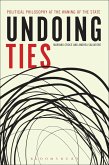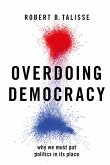Undoing Ties claims to offer an answer to the question of what happens when the ties between traditional political institutions and citizens are being undone. The basic aim of the book is to offer an introductory and accessible overview of those paradigms and theories that are specifically concerned with the irreducible plurality of life forms and seek to understand how this challenge should be faced. The authors adopt an interdisciplinary approach to foreground how scholars in different areas (such as political philosophy, jurisprudence, sociology and anthropology) deal with one of the key characterizing elements of today's political scenario, that is to say, the reviviscence of sub-state and supra-state groups as crucial political actors vis-à-vis the state.









